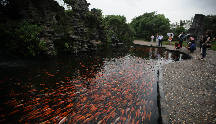Beijing Roast Duck
Beijing Roast Duck
In the cosmopolitan gourmet capital of Beijing, virtually every cuisine in the world is available. But there is one that natives eat with relish, kids tuck into and whose temptations tourists succumb to without shame. That gourmet delight is Beijing Roast Duck.
Actually the dish has been popular with diners since the Qing Dynasty. Emperor Qianlong went so overboard after his first taste that he had it eight times in the next 13 days. One American gourmet, who has tasted the cuisines of some 100 countries, praised Beijing roast duck as the world’s tastiest dish. Former U.S. President George Bush senior got the duck habit during the 1970s when heading the US liaison office based in Beijing, and in the 20-odd years since leaving office he and his wife have been frequent customers of a Beijing duck restaurant in the Washington area.
You can take your pick from three stories about how the dish originated. Version 1 takes us back to and beyond the Yuan Dynasty (1271-1368). In the Southern Song Dynasty (1127-1279), the Southern Song capital (Lin’an, today’s Hangzhou) abounded with duck, which cooks broiled over fire to become the famous dish of the capital. After the Mongols succeeded in conquering all of China and the Song finally collapsed, soldiers took 100 or more captive workers and apprentices to the Yuan capital Dadu (today’s Beijing), where the broiled duck was developed and improved, becoming Beijing Roast Duck.
Version 2 gives the dish a Ming Dynasty pedigree. The Ming set up its capital in Nanjing, a city teeming with lake duck. The imperial chefs’ endeavors in developing duck dishes resulted in the well known salted duck, crispy aromatic duck and roast duck. When the Ming Emperor Chengzu moved the capital to Beijing, roast duck came too. From the imperial court the dish spread to ordinary Beijing households, becoming an entrenched favorite.
Version 3 takes us back eight centuries when the Jin Dynasty (1115-1234) established its capital in Beijing. Originally a nomadic people from the northeast, the Jin were expert hunters, and after hunting down wild duck, they would pluck and roast them. Imperial chefs improved the roasting technique, establishing a set formula, which evolved to give us today’s Beijing roast duck.
No reliable evidence exists to support any of the above, but murky beginnings in no way stopped this delicious dish from becoming hugely popular. However, achieving the real deal, with perfect brown skin and aromatic flavor is no cakewalk. A standard duck should weigh 1.35kg, with a margin of error of only 0.05 kg. The chef needs to estimate the weight of the duck on a 1kg metal pole and this skill alone takes at least half a year to learn. Leaving the actual cooking aside for a moment, just slicing the duck calls for expertise. The standard way is to cut it into 108 slices, every one of which should include some of the crispy skin.
C
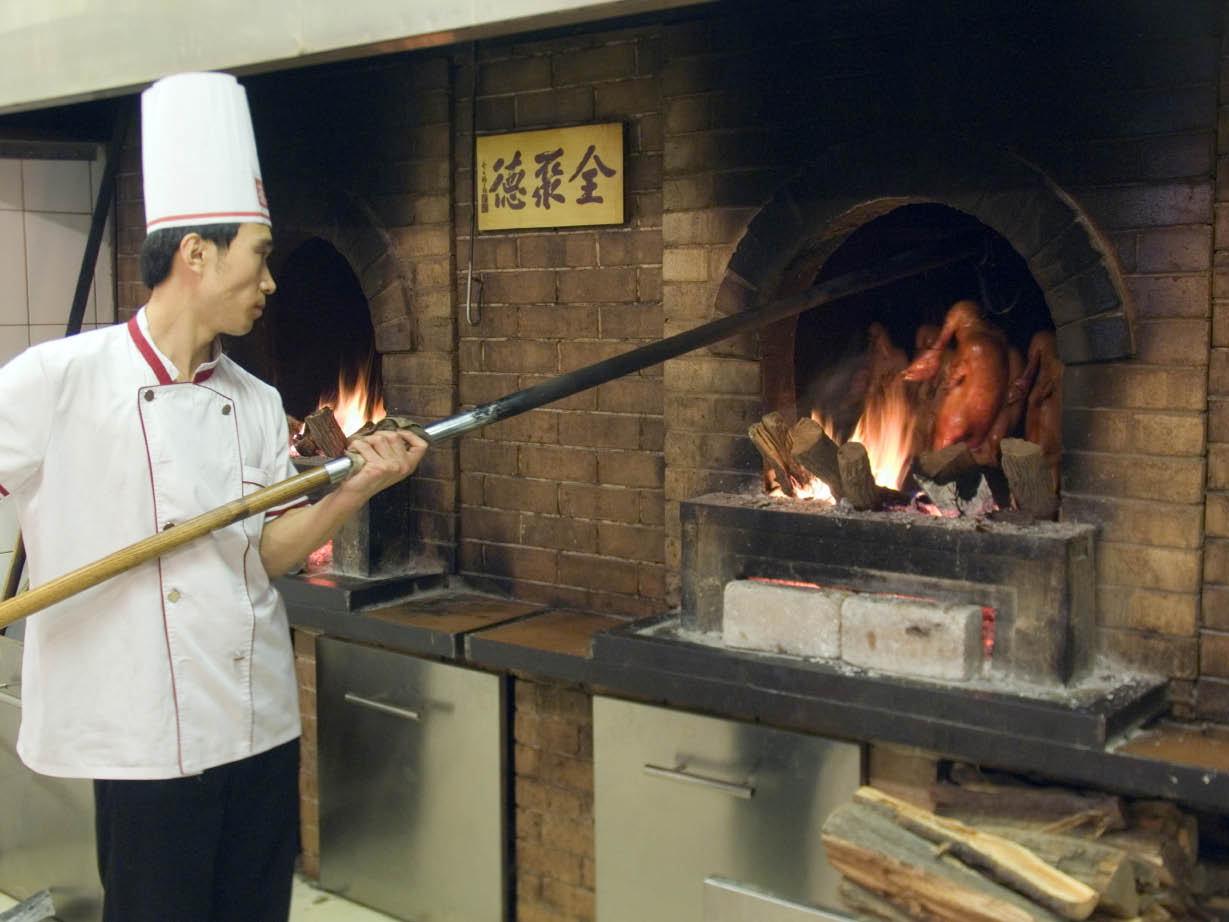
"Hung oven" style. China Foto Press
Enjoy this dish on its home turf, at:
Quanjude
The first Quanjude Roast Duck Restaurant opened in 1864, early in the reign of Qing Emperor Tongzhi. Its “hung oven” technique involves suspending the ducks over a wood fire in an open oven. Quanjude now has many branches in China and abroad, but the original on Beijing’s Qianmen Street is the most popular. This flagship store serves up delicious duck and an insight into the history of this culinary classic.
Quanjude Qianmen Branch
30 Qianmen Street, Dongcheng District, Beijing
Tel: (86) 10- 67011379
Bianyifang
The Ming Emperor Yongle ruled China when Bianyifang came on the scene in Mishi Alley, Caishikou Street. That was in 1416, some 500 years ago! Bianyifang, the oldest established roast duck restaurant, represents the other main cooking style – the “closed oven” in which the ducks are cooked in an enclosed oven over the residual heat of an extinguished wood fire.
Bianyifang Chongwen Branch
Jia 2 Chongwenmenwai Street, Dongcheng
District, Beijing
Tel: (86)10-67112244
Dadong:
Besides those two time-honored brands, it’s also worth checking out Dadong Roast Duck, which has evolved the traditional dish to suit lighter tastes. Building on the basics, Dadong perfected its own modern recipe, one that produces crispy skin, succulent, nutritious meat and delicate flavor without fat or greasiness.
Dadong Roast Duck Tuanjiehu Branch
Building 3, Tuanjiehu Beikou, Chaoyang
District, Beijing
Tel: (86) 10- 65824003
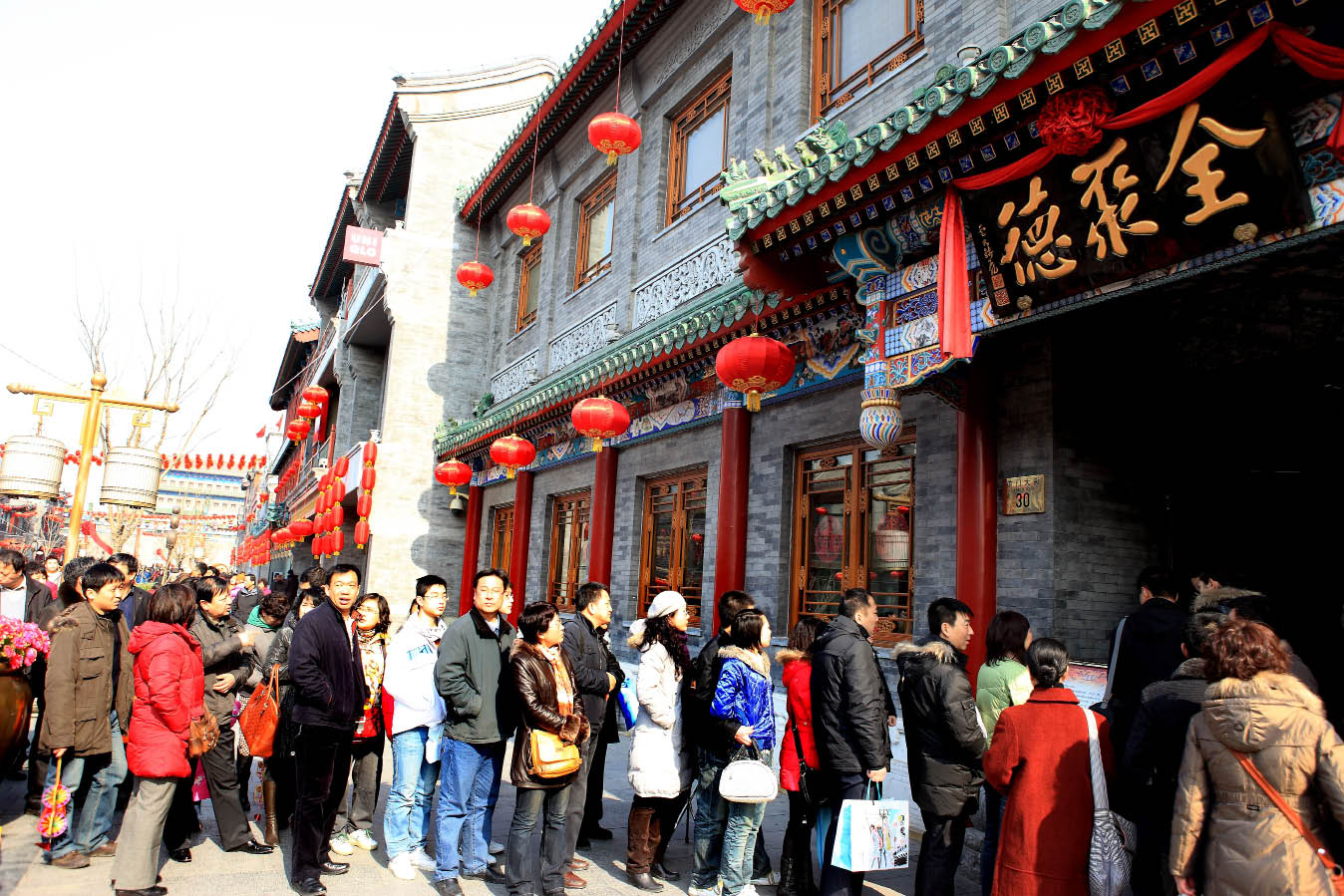
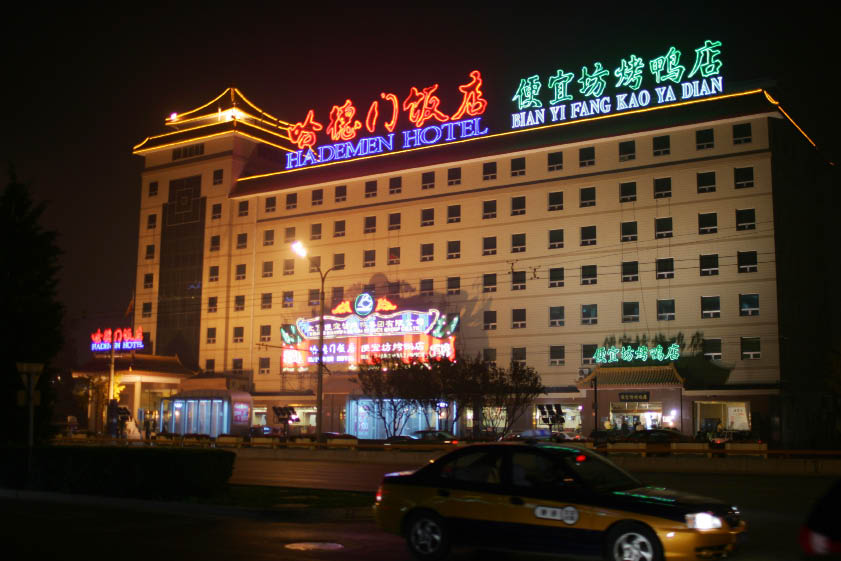
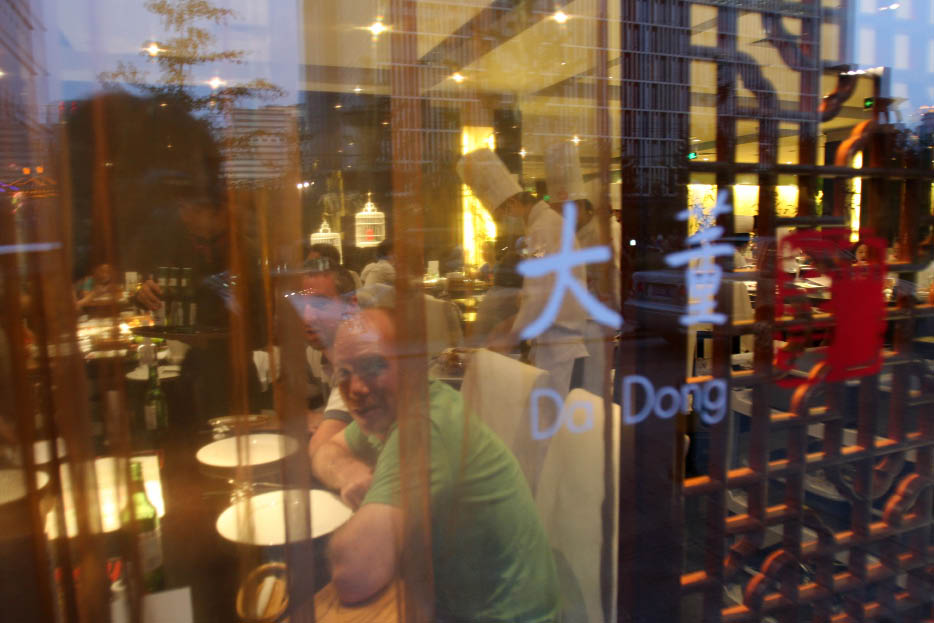
Services
Economy
- Eco-agriculture and Eco-tourism Power Nanchang’s Green Development
- Balance Environmental Protection and Economic Prosperity – Nanchang Looks to European Technology for Green Development
- Sustainable Growth Requires Wiser Energy Use
- Chinese Economy: On the Path of Scientific Development
- China's Economy over the Last Ten Years

